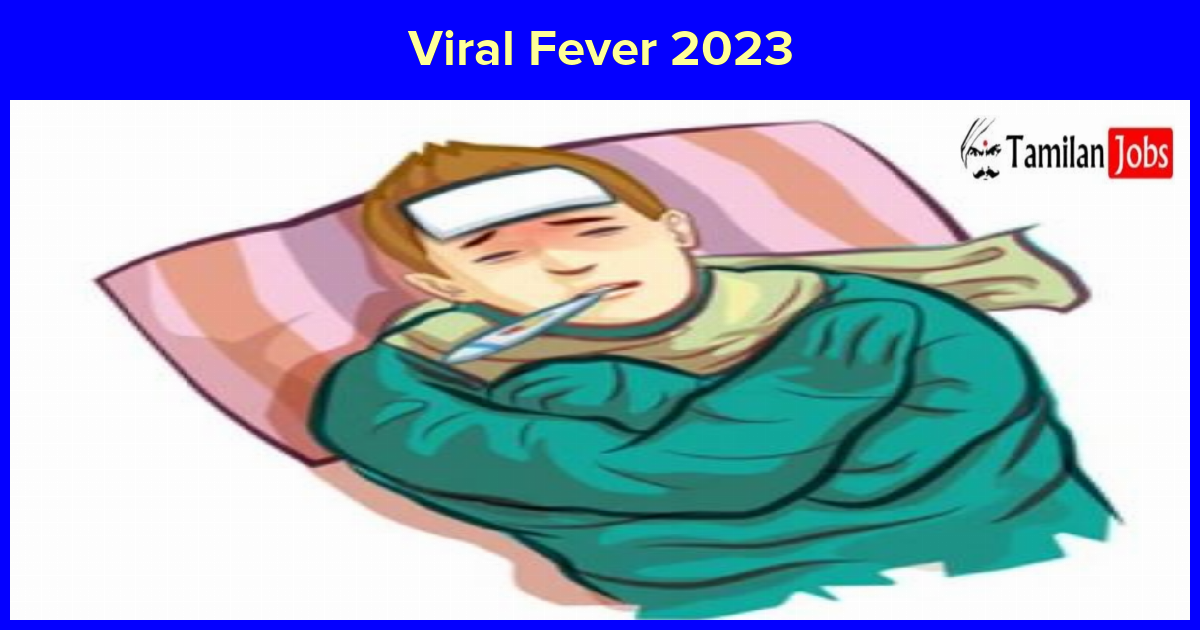Viral Fever 2023: Viral fever is a common illness that affects people of all ages. It is caused by viral infections that affect the body’s temperature regulation system, leading to a high temperature or fever. In this article, we will discuss the causes, symptoms, diagnosis, and treatment of viral fever.
What is viral fever?
Viral fever is a medical condition characterized by an increase in body temperature due to a viral infection. It is a common health issue that can affect anyone, irrespective of age or gender. It is usually a self-limiting illness that resolves within a few days, but in some cases, it can lead to severe complications.

How does viral fever occur?
Viral fever occurs when a virus enters the body and starts replicating, leading to an immune response from the body. The immune response leads to the production of various chemicals in the body that can affect the body’s temperature regulation system. This leads to a fever or an increase in body temperature.
What are the prone to viral fever?
Anyone can get a viral fever, but some people are more prone to it than others. People with weak immune systems, young children, and the elderly are more prone to viral infections. People who live in crowded areas or have close contact with infected individuals are also more likely to get the viral fever.
Symptoms of viral fever
The symptoms of viral fever include:
- High body temperature
- Headache
- Body ache
- Fatigue
- Weakness
- Loss of appetite
- Cold and cough
- Sore throat
- Nausea and vomiting
- Diarrhea
How is viral fever diagnosed?
A doctor can diagnose viral fever based on the symptoms and a physical examination. They may also recommend some tests to confirm the diagnosis, such as a blood test, urine test, or a throat swab.
Complications of viral fever
In some cases, viral fever can lead to complications such as dehydration, pneumonia, meningitis, and encephalitis. It can also worsen existing medical conditions such as asthma and diabetes.
What is the treatment for viral fever?
There is no specific treatment for viral fever, but the symptoms can be managed with the following:
- Rest and hydration: Drink plenty of fluids and get adequate rest to help the body fight the infection.
- Medications: Over-the-counter medications such as paracetamol and ibuprofen can help reduce fever and relieve pain and inflammation.
- Antiviral medications: Antiviral medications may be prescribed in severe cases or for people at high risk of complications.
- Home remedies: Home remedies such as warm compresses, saltwater gargles, and steam inhalation can help relieve symptoms.
Note: Viral fever is a common health issue that can affect anyone. It is caused by a viral infection that leads to an increase in body temperature. While there is no specific treatment for viral fever, the symptoms can be managed with rest, hydration, and medications. If you suspect you have a viral fever, it is important to seek medical attention and follow the doctor’s advice to prevent complications.

